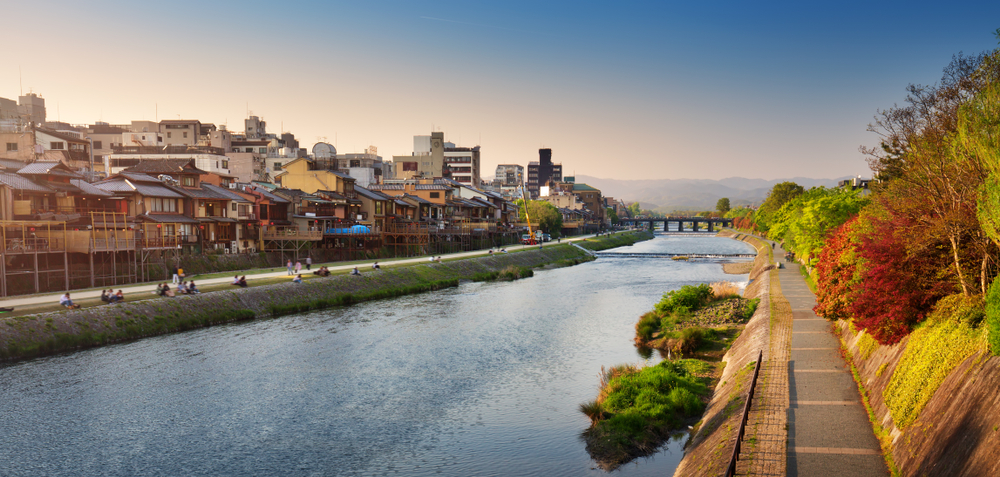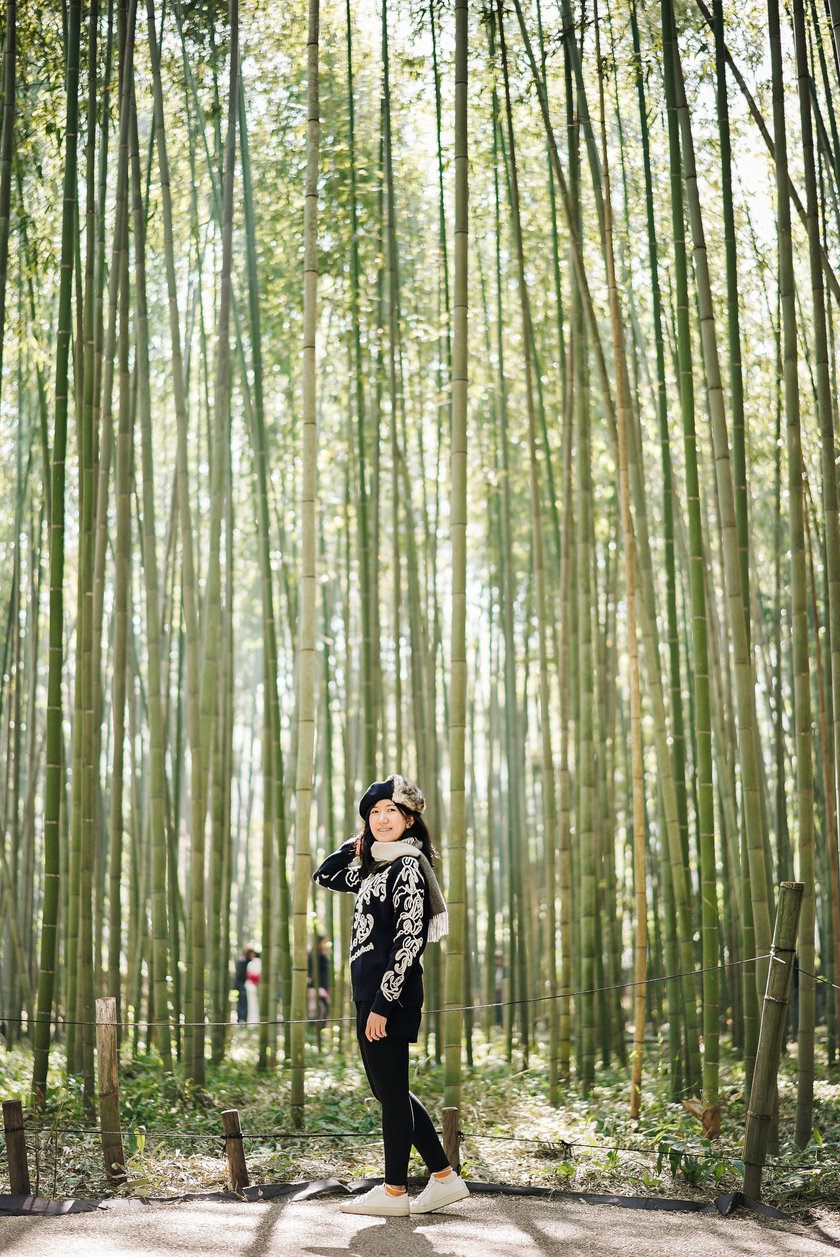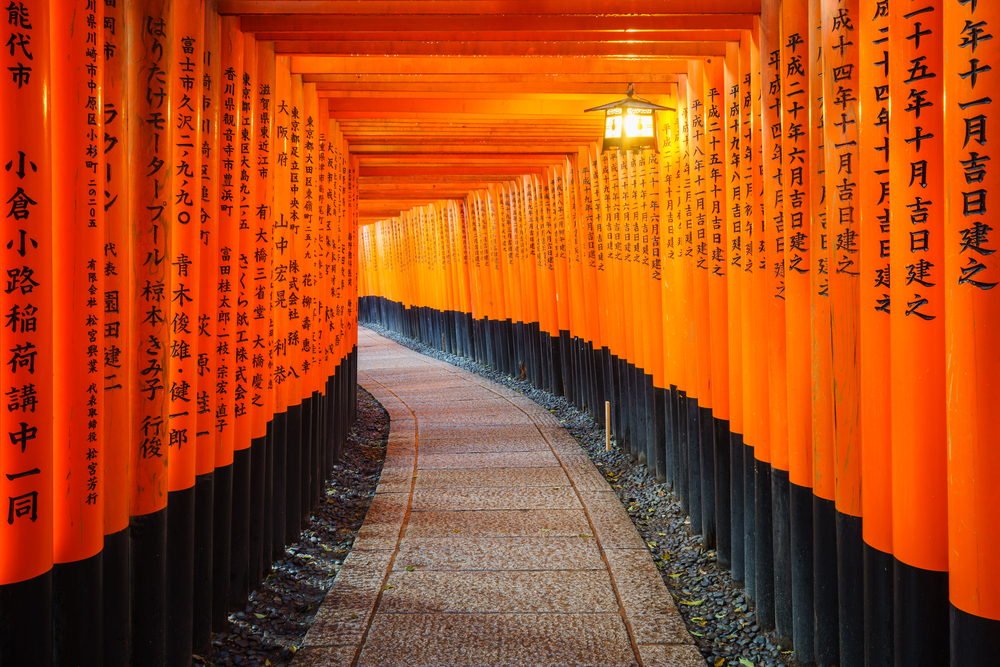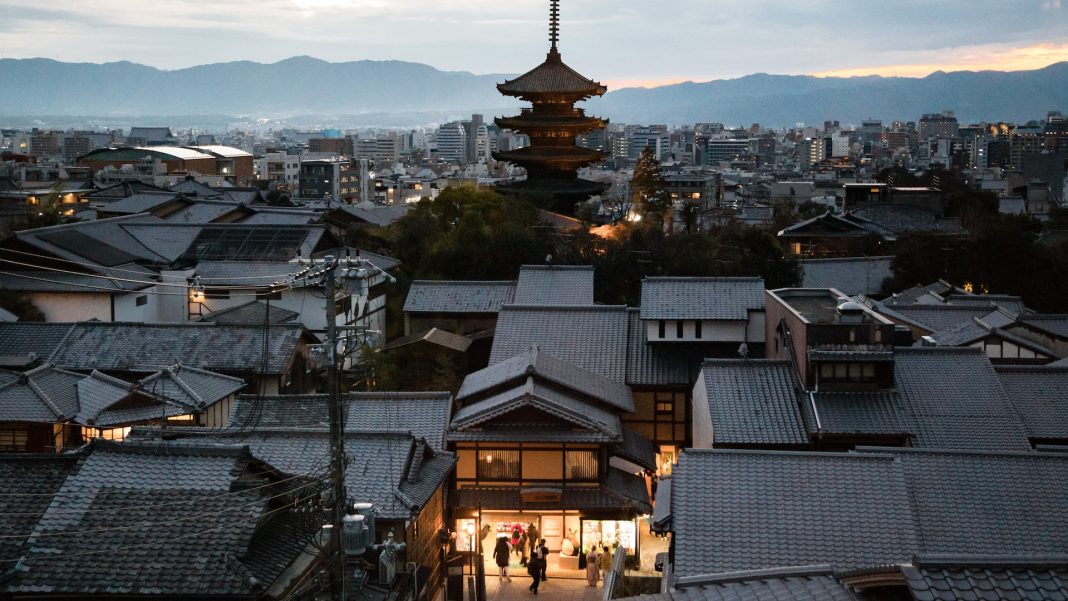Kyoto, formerly the Imperial capital of Japan, has been the centre of Japanese tradition and culture for thousands of years. Today, it attracts millions of visitors yearly to marvel at the city’s traditional atmosphere, temples, shrines and Japanese gardens. Kyoto boasts a remarkable collection of 17 UNESCO World Heritage sites.
If you’re travelling to Kyoto for the first time, one of the most crucial aspects of your travel experience is where to stay. There is, in fact, a lot to do in Kyoto, so I highly recommend staying there for a couple of days.
Stay connected on your trip with Changi Travel eSIM for Japan – Unlimited data from as low as S$0.75 here!
Where to Stay in Kyoto, Japan
1. Downtown Kyoto

Downtown Kyoto is the heart of the city which makes it an ideal base if you’re in Kyoto for the first time. This lively district is also known as Kawaramachi and is within a one-kilometer radius of Shijo Kawaramachi, where Shijo Street and Kawaramachi Street intersect. It’s an area dotted with restaurants, shops, and attractions. There are also plenty of transportation options available such as the subways, buses and JR Line, making it easy to get around the city.
View this post on Instagram
Some of the popular things to do nearby:
- Nishiki Market – Nishiki Market is not just a place to shop but also a place to immerse yourself in the local culture. With its lively atmosphere and colorful displays, it offers a unique glimpse into the daily life and culinary traditions of Kyoto. Despite its popularity among tourists, it remains a favourite spot for locals, adding to its authentic charm.
- Gion district – One of the most famous and well-preserved entertainment and geisha districts in Kyoto, Japan. Gion is known for its traditional wooden machiya merchant houses, teahouses (ochaya), exclusive restaurants, and its role as the city’s center of arts, entertainment, and traditional culture.
- Kimono Rental – Kimono rental in Kyoto is a popular activity among both locals and tourists who want to immerse themselves in traditional Japanese culture. There are plenty of Kimono Rental stores in this area. Remember, if you’re planning to rent a kimono, it’s recommended to make a reservation in advance, especially during peak travel seasons. 👉Book Kimono Rental from here.
- Kamo River – The banks of the Kamo River are popular walking spots for both residents and tourists. They offer a tranquil escape from the bustling city life and are particularly beautiful during the cherry blossom season. The riverbanks are lined with wide green areas and bike paths, making them a favorite spot for running and cycling.
View this post on Instagram
You can also find a variety of accommodations in downtown Kyoto, ranging from luxury hotels to budget-friendly hostels.
Staying in Downtown Kyoto? Check-in to Cross Hotel Kyoto. Prices start from SGD$345
For budget-conscious traveller, can consider PIECE Kyoto Sanjo, one of the top hostels in downtown Kyoto. Prices start from SGD$164
2. Kyoto Station
View this post on Instagram
Kyoto Station is a marvel of modern architecture. More than just a gateway to Japan’s ancient imperial capital, it’s a destination in its own right.
The moment you step inside, you’re welcomed by a soaring 15-story atrium, filled with natural light streaming through the futuristic glass and steel structure. The structure is a stunning blend of traditional Japanese aesthetics and cutting-edge design, reflecting Kyoto’s unique balance of old and new.
Kyoto Station is one of Japan’s largest railway stations. It houses a multitude of facilities including a shopping mall, a department store, a hotel, and a theater. You’ll also find an array of dining options, from traditional Japanese cuisine to international favourites.
Some of the popular things to do nearby:
- Kyoto Tower – It is the tallest structure in the city and offers stunning 360-degree views of the cityscape, including the ancient temples and shrines that Kyoto is famous for.
View this post on Instagram
- Higashi Hongan-ji Temple – A temple dedicated to Japanese Buddhism and Shinran’s teachings. It is a temple with monumental architecture and the biggest wooden roof in the world. The temple was constructed in the 17th century and is connected to Nishi Hongan-ji, a twin temple, which is situated a few hundred metres to the west.
- Kyoto Beer Lab – The brewery is located in a traditional Japanese house in the heart of Kyoto. The bar is small and intimate, with a cosy atmosphere.
Staying in Kyoto Station? Check-in to Mitsui Garden Hotel Kyoto Station. Prices start from SGD$226
3. Arashiyama
Arashiyama is a district located in the western outskirts of Kyoto, Japan. It is a scenic area that has been celebrated for centuries and is now a nationally designated Historic Site and Place of Scenic Beauty.
Some of the popular things to do nearby:
- Arashiyama Bamboo Grove – Arashiyama is most famous for its breathtaking bamboo grove, a surreal and serene pathway surrounded by towering bamboo plants. This is one of the most photographed sights in the city so it tends to be crowded during the afternoon. Pro tip: Try to get there early in the morning to enjoy the serenity and pose for pictures without getting interrupted.

- Tenryuji Temple – A UNESCO World Heritage Site known for its beautiful garden and scenic views of the surrounding mountains.
- Sagano Romantic Train – If you’re visiting during the Autumn season, there is a scenic train ride which offers a nostalgic ride through the beautiful landscapes of Arashiyama. 👉Get tickets to the Sagano Romantic Train Ride here.
View this post on Instagram
View this post on Instagram
- Iwatayama Monkey Park – Nestled on Mt. Arashiyama, on the opposite side of the Ōi River, Iwatayama Monkey Park Park offers a unique opportunity for visitors to interact with wildlife in a natural setting. This park is home to over 120 Japanese macaque monkeys (also known as Snow Monkeys). Admission to the Iwatayama Monkey Park costs ¥600 (Approx. SGD$6). To reach the park, there’s a short hike from the base of the mountain. Once you reached the park, you can enjoy the panoramic views of Kyoto City, which adds to the charm of the experience.
View this post on Instagram
Whether you’re exploring the bamboo grove, visiting historic temples, or simply enjoying the great outdoors, Arashiyama offers a tranquil escape from the hustle and bustle of downtown Kyoto.
Staying in Arashiyama? Check-in to YADO Arashiyama. Prices start from SGD$256
Alternatively, you can check-in to an onsen resort in Arashiyama, Kadensho, Arashiyama Onsen, Kyoto – Kyoritsu Resort, prices start from SGD$639
4. Higashiyama
Higashiyama, which translates to “Eastern Mountain,” is one of the eleven wards in the city of Kyoto. It is named after the eastern mountains of Kyoto and is renowned for its historic charm and well-preserved Kyoto heritage.
Higashiyama is known for its narrow, winding streets lined with traditional wooden houses, tea shops, and small boutiques. The streets are often filled with tourists wearing rented kimonos, adding to the area’s nostalgic atmosphere. The old-world charm of Higashiyama is further preserved by regulations that limit modern buildings and require that shop signs be in traditional wooden format.
View this post on Instagram
View this post on Instagram
The ward is home to many of Kyoto’s major tourist attractions. These include Kiyomizu-dera, a UNESCO World Heritage Site and one of the most celebrated temples of Japan, offering stunning views over the city from its wooden terrace.
There’s also the Yasaka Shrine, which has been a gathering spot for locals and tourists for over 1350 years, especially during the annual Gion Matsuri, one of Japan’s largest festivals.
Pro tip: Utsukushi-gozen Shrine, located on the east side of Yasaka Shrine, is dedicated to three female beauty deities: Ichikishima-hime-no-kami, Tagiri-hime-no-kami, and Tagitsu-hime-no-kami. It is believed that those who visit this shrine will be blessed with beauty in both the mind and body, and many young women, including geisha and maiko, visit the shrine.
View this post on Instagram
Higashiyama is also an excellent location for souvenirs shopping and enjoying traditional Japanese cuisine.
Staying in Higashiyama? Check-in to Kyoto Ryokan Gion Sano. Prices start from SGD$338
5. Fushimi
Fushimi is a neighbourhood located south of Kyoto and is famous for its sake breweries. Home to nearly 40 sake breweries, it is one of the largest sake-producing areas in Japan. You can tour some of these historic breweries, enjoy sake tastings, and learn about the traditional methods used to produce this iconic Japanese beverage.
View this post on Instagram
Fushimi’s charm is further enhanced by its picturesque scenery. Depending on the season you are visiting, the willow-lined Horikawa River flows through the district, providing a tranquil setting that contrasts with the bustling city life. One can imagine the beauty of this place during springtime. During the Cherry Blossom season, traditional boat cruises will also be available on the Horikawa River.

View this post on Instagram
One of the most famous spots in Fushimi is the Fushimi Inari Taisha, one of Kyoto’s oldest and most revered Shinto shrines. The shrine is renowned for its iconic “Senbon Torii,” a path lined with a thousand of bright red torii gates that span across a mountain.
Staying in Fushimi? Check-in to Urban Hotel Kyoto. Prices start from SGD$66
Excited to explore all that Kyoto has to offer? Book your Airport Transfers and Private Car Charter services with Changi Recommends and glide from the plane to your destination in comfort and style.
Other articles on Kyoto:
- How to Get From Tokyo to Kyoto
- 10 Best Things to Do in Kyoto
- Discover the Enchanting Beauty of Kyoto on An Unforgettable Day Tour
- Icy and Instagram-Ready: Edible Flower Ice Bouquet in Kyoto’s (THISIS)SHIZEN
- 6 Famous Dishes in Kyoto and Where to Find Them
- 8 Best Temples to See Cherry Blossoms in Kyoto
- 3D2N in Kyoto: Experience Old-World Japan
- A Tale of Two Cities: Osaka and Kyoto
- Explore Japan’s former Imperial Capitals on JR NARA Line
- Famous Sake-Producing Regions in Japan
- Where to Enjoy Beautiful Autumn Scenery in Japan






